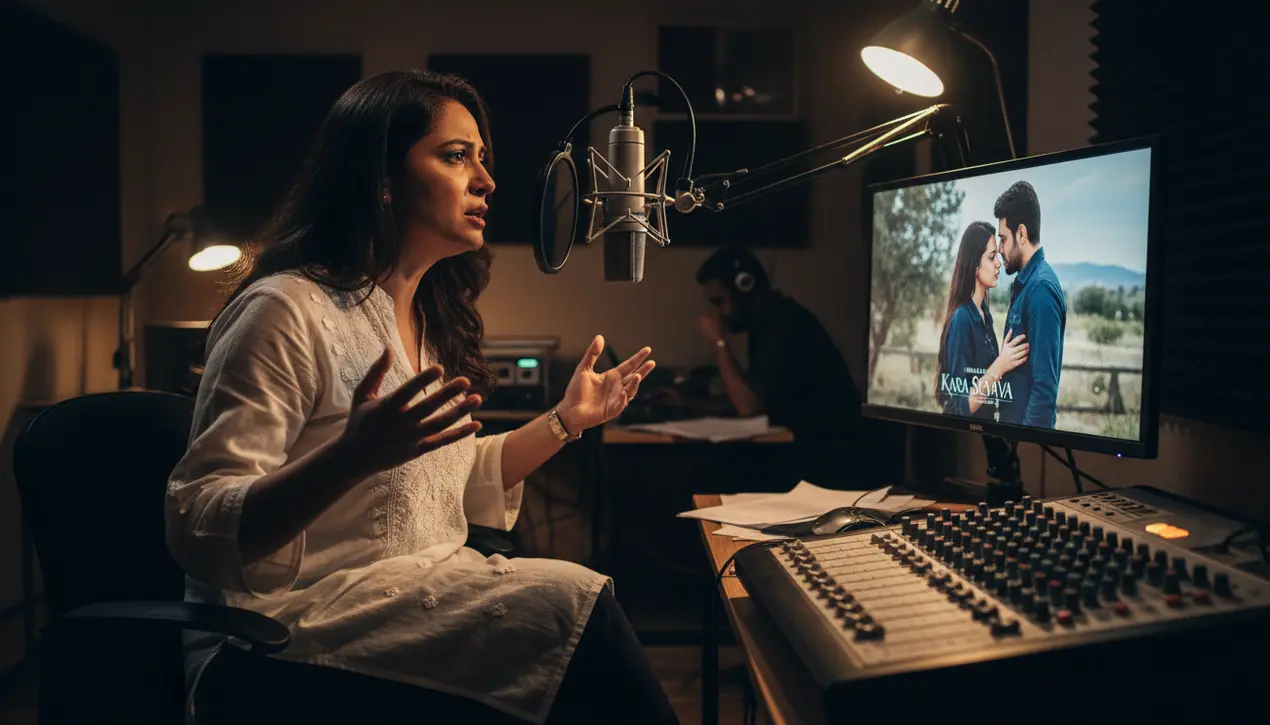
PoliticsdiplomacyCultural Diplomacy
Bangladesh and Turkey Strengthen Ties Through Cultural Exchange.
LI
Lily Harper
2 hours ago7 min read1 comments
In a Dhaka recording studio, the air crackles with the kind of dramatic tension usually reserved for a red carpet premiere. Voice-over artist Rubaiya Matin Gity, her gaze locked on a screen, breathes life into the latest Turkish import captivating millions, the soap opera 'Kara Sevda' (Endless Love).'Yasmeen! Yasmeen! I have fallen in love. ' she cries in Bangla, a performance that transcends mere dubbing and becomes a cultural conduit.This isn't just a pop culture moment; it's a full-blown diplomatic courtship playing out on the small screen, a glamorous entanglement where the heartthrobs of Istanbul are forging bonds as strong as any trade agreement between Bangladesh and Turkey. The success of these Turkish shows—with their sweeping cinematography, intricate family sagas, and high production values that often rival major film productions—has created a surprising and powerful soft power pipeline.While Bollywood once dominated South Asian entertainment, Turkish dramas have carved a distinct niche, offering a different cultural aesthetic that resonates deeply with Bangladeshi audiences, particularly in their portrayal of complex familial honor and modern romance. This televised love affair is meticulously curated; channels like Deepto TV and Asian TV have built their prime-time schedules around these series, understanding that the audience's appetite for stories from the Bosphorus is insatiable.The phenomenon mirrors a broader geopolitical romance. Turkish President Recep Tayyip Erdoğan has actively cultivated relationships with Muslim-majority nations, and Bangladesh, with its strategic location and growing economy, represents a key partner.This cultural exchange serves as the perfect, palatable prelude to deeper discussions on defense cooperation, with Bangladesh recently purchasing military equipment from Turkish firms, and increasing trade, which has seen a notable uptick in textiles and agricultural products moving between the two nations. Political analysts observe that these soap operas act as a form of 'narrative diplomacy,' subtly aligning public perception and fostering a sense of shared identity and values before diplomats even sit down at the negotiating table.It’s a strategic masterstroke, far more effective than any dry press release. The actors become unofficial ambassadors, their fictional struggles and triumphs making Turkish culture feel familiar and aspirational to a Bangladeshi family gathered around their television set.This is a symbiotic relationship, however. For Turkey, it expands its cultural footprint and influence in a rapidly developing region, countering the narratives of other global powers.For Bangladesh, it provides a window to a different world and strengthens ties with a significant NATO member state, diversifying its international alliances beyond its traditional partners. The dubbing artists, like Gity, are the unsung heroes of this exchange, their vocal performances ensuring the emotional nuance isn't lost in translation. As new episodes continue to air, the bond deepens, proving that in the modern era of international relations, sometimes the most powerful treaties are not written on parchment, but scripted for television and delivered with the kind of heartfelt emotion that needs no subtitle.
#Bangladesh
#Turkey
#diplomacy
#cultural exchange
#TV dramas
#bilateral relations
#featured
Stay Informed. Act Smarter.
Get weekly highlights, major headlines, and expert insights — then put your knowledge to work in our live prediction markets.
Related News
Comments
Loading comments...
© 2025 Outpoll Service LTD. All rights reserved.